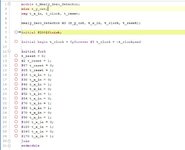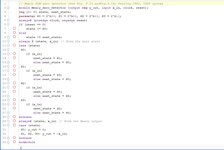Mustaine
Member level 1
Hello friends i am currently studying the Digital Design by morris mano and when i set the example below to the vivado screen i cannot attain the state variables. How can i do that can you hrlp me about that
thanks in advance.
thanks in advance.



